“European Green Deal: Technologies & Policies towards a Carbon-Neutral Road Transport by 2050”
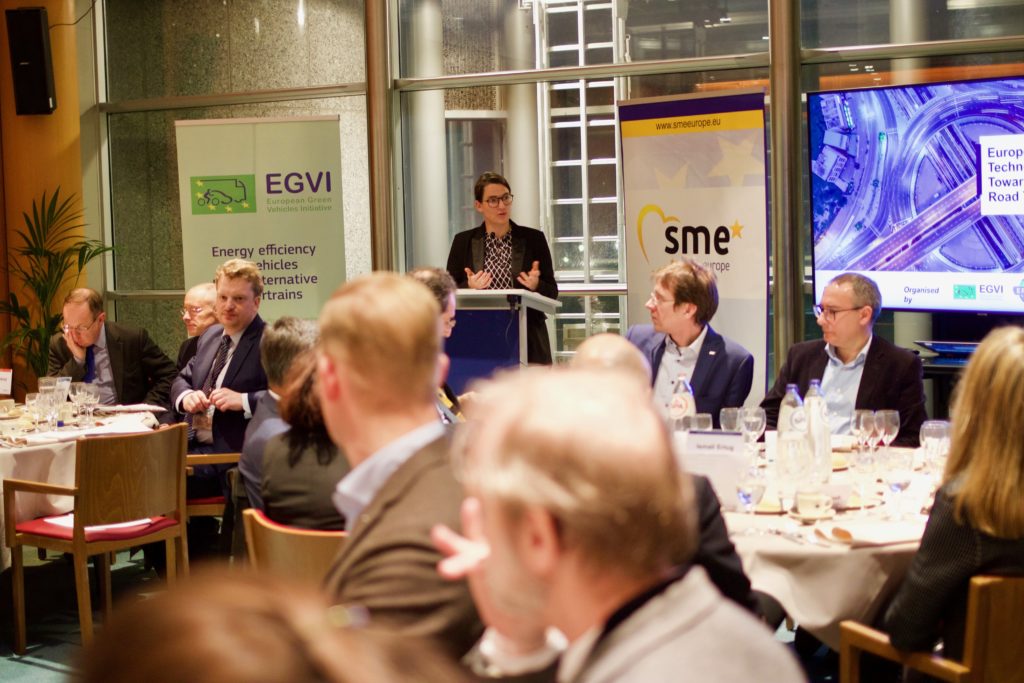
The Transport sector currently accounts for 23% of global energy-related CO2 emissions. A close collaboration of policy ambition and business action will be key to achieving the vision of Europe becoming the first climate-neutral continent by 2050. In the future, all road vehicles such as cars, trucks, buses or two-wheelers, will require a mix of powertrain technologies matching the users’ needs and should be fueled by sustainable energies. That requires united forces of various stakeholders to work on the European research efforts needed to develop and deploy these solutions.
On February 19 2020, SME Europe hosted a Working Dinner in cooperation with the European Green Vehicles Initiative (EGVI) and the European Road Transport Research Advisory Council (ERTRAC) in the European Parliament, to contribute to the ongoing discussion on the future energy needs in road transport, gathering stakeholders active in e-mobility, biogas, synthetic fuels, etc.
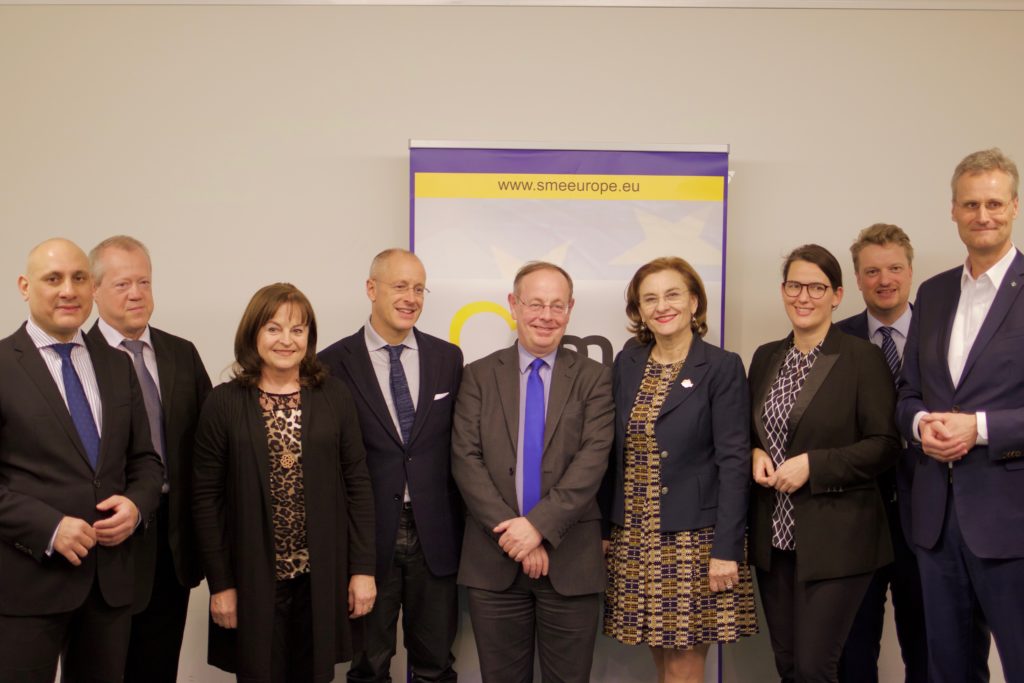
We had the honour to welcome host Barbara Thaler MEP, Member of TRAN Committee;
Barbara Thaler MEP opened the discussion by stressing that mobility is the key prospector for wealth. It is vital to
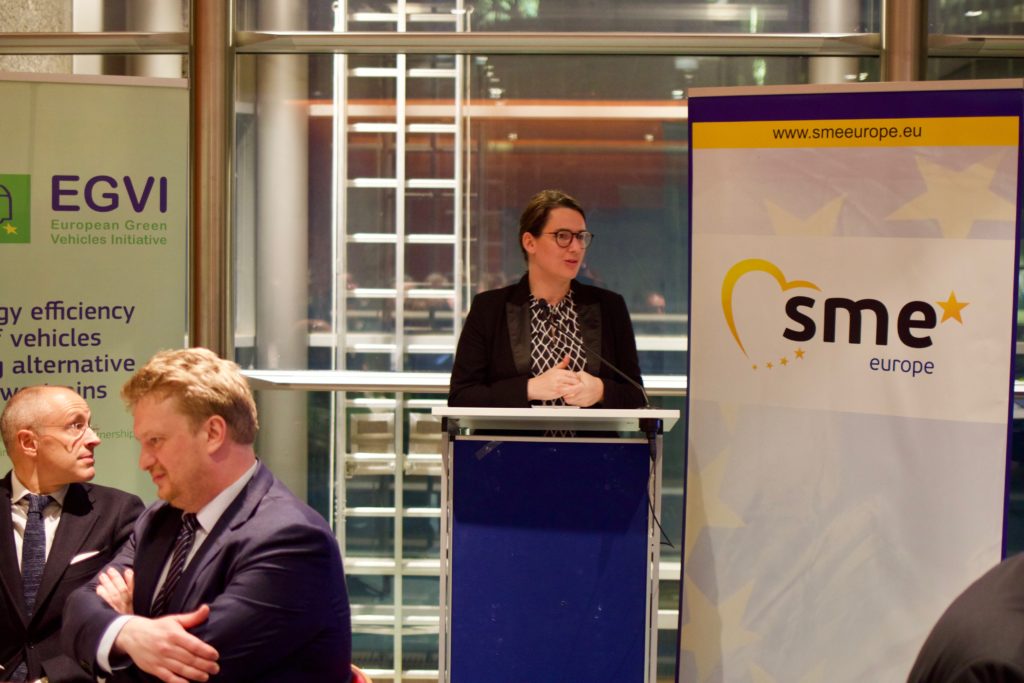
As an expert in this field, Dr Stephan Neugebauer stressed on the importance of an exchange with political actors as well as experts of road transport. In order to achieve the goals set out by the European Green Deal, communication between all different stakeholders is key. He continued by asking “How can we achieve a Carbon-Neutral Road Transport by 2050?” “Is it possible?” The answer was a clear “Yes, it is possible.” But he also explained that the system, in which these actors operate, needs to change drastically. “What are the boundary conditions to make this change happen?” All sectors, from the automotive industry to energy providers/electricity sector as well as the research and innovation infrastructure need to work together to contribute to the discussion as an entity. In the past, there was no strong link or collaboration between different stakeholders and neither the public sector, Neugebauer outlined. Nevertheless, the automotive industry must not appear as a closed club of stakeholders that decide everything by themselves, it must be open for everyone to join and voice their opinion and ideas. The goals set out by the European Green Deal can only be achieved through various partnerships.
“We need strong partnerships and collaboration between stakeholders: We need to work together.”
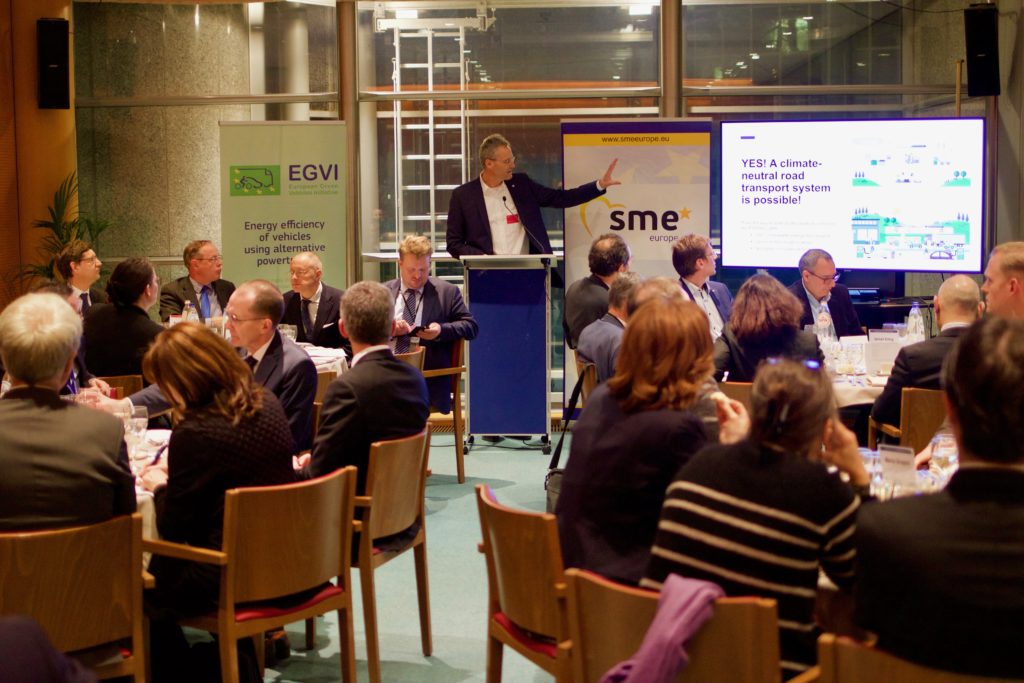
He visualized the importance of partnerships by bringing as
“We have to improve the infrastructure so that people are able to change their habits in the future.”
Stephan Neugebauer continued by stressing on the fact that “there is no single solution for the decarbonization of road transport, there is no single technology: We need a set-up of different technologies.” It is not only about electric cars, but also about changing daily habits such as taking the bike to work. “Being honest, do you want to ride a bike in Brussels? No, thus o
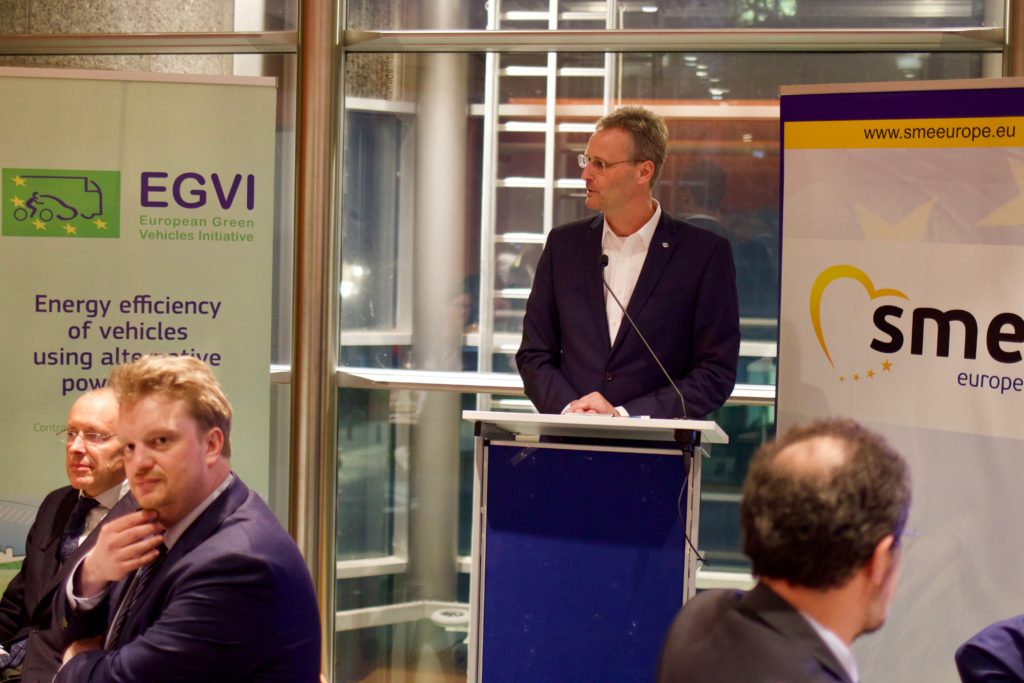
Neugebauer also believes that a mix of technologies will help to get a better user acceptance as the customer then can decide which option fits best his own needs. “We will be able to deliver a climate–neutral road transport system and we will be able to contribute to the European Green Deal” Neugebauer assured. “We want to deliver but we need to bring all stakeholders together and we need to develop an ambitious research and innovation programme for road transport.”
Patrick Child emphasized on the importance of seeing the European Green Deal as an opportunity for the transport and mobility sector (or any kind of sector) and not only as a response to the climate challenges and the urge of making Europe the first climate-neutral continent by 2050. “The European Green Deal is not only to combat climate change but in general to set higher standards within various sectors.” He then referred back to what Stephan Neugebauer said and underlined the importance of working together. “The commitment of working in partnership to address these challenges is very essential.”
“The European Green Deal is not only to combat climate change but in general to set higher standards within various sectors.”
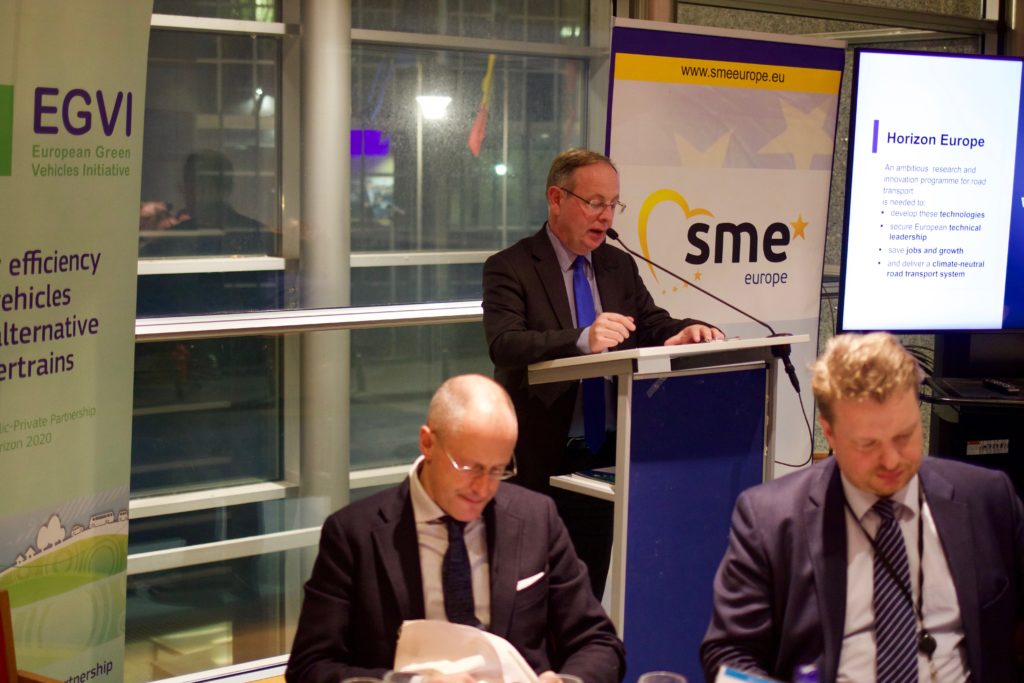
The European Commission wants to actively engage in partnerships and embrace the opportunities of Horizon Europe. The new Commission’s Framework Program, Horizon Europe, should give stakeholders a window to work in an open and cooperative way to then find
“We need to shift the level of ambition towards genuinely disruptive, groundbreaking and exciting ideas for the future.”
Patrick Child has touched upon the importance of a strong MFF to build up prosperous partnerships. However, there will probably be not enough budget to meet all the competing demands he warned. Therefore, it is vital to show that the offered propositions have a high added value. “Horizon Europe and the mission that it sets out should be a source of innovation to mobilize public opinion. Creating a political momentum, enthusiasm and political will to raise our ambition to achieve the objectives” Child concluded.
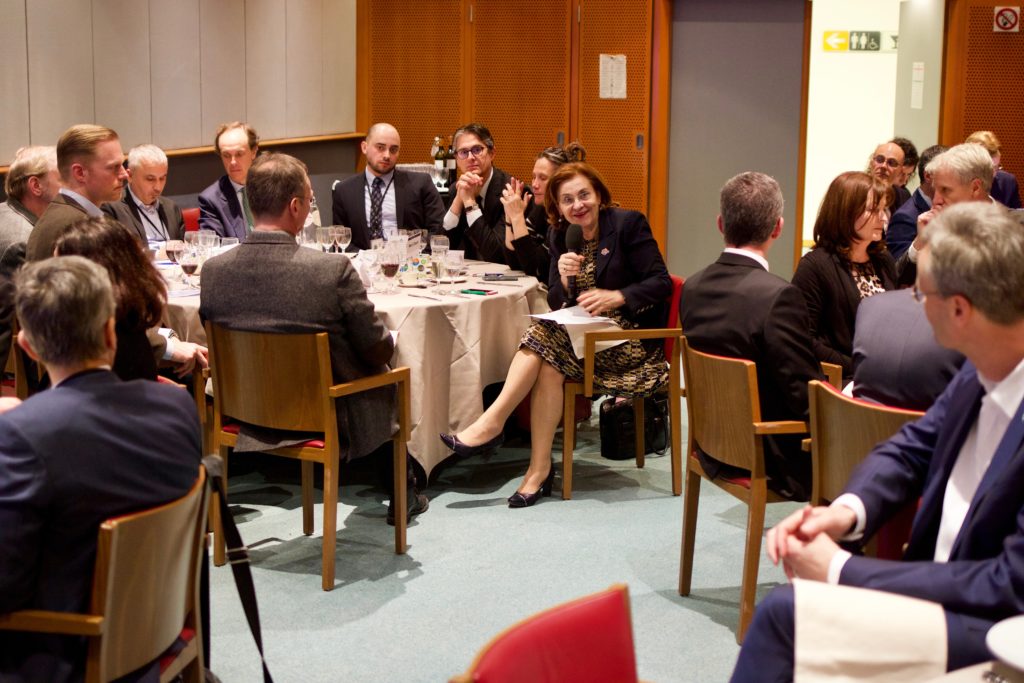
Maria Grapini MEP contributed to this debate by stating that it is possible to reach the high ambitions set out by the European Green Deal, through partnerships with the private economy, local and national administrations as well as the European Parliament and the European Commission. But she stressed that the responsibility also lies within each member state, each region and each local entrepreneur.
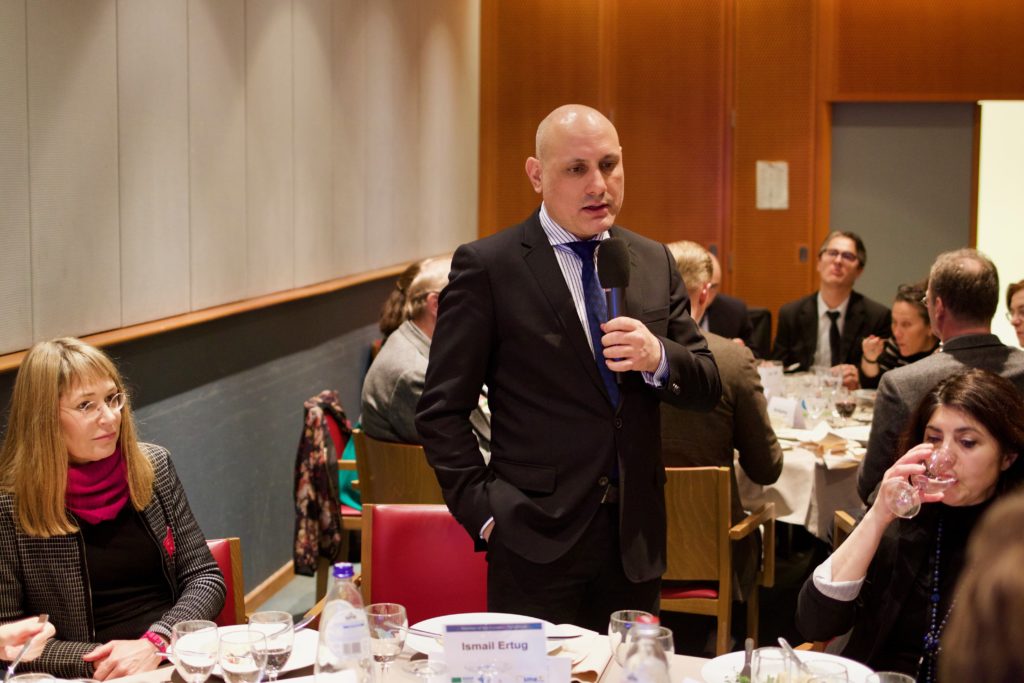
Ismail Ertug MEP has a firm belief that “a Green Deal is not possible without new technologies.” He stressed on the importance to invest in new technologies as a form of a transformative approach to reach the objectives set out by the European Green Deal, in opposition to a rather disruptive approach. He pointed out that the future of mobility will certainly be a mixture of different fuels and technologies until 2030/35.
Throughout his speech, Ismail Ertug did not shy away from money. He understands the necessity of major investments in research and development. He believes that the Member states need to be less “
“We need to talk to the national parliaments as they should no longer think in national terms.”
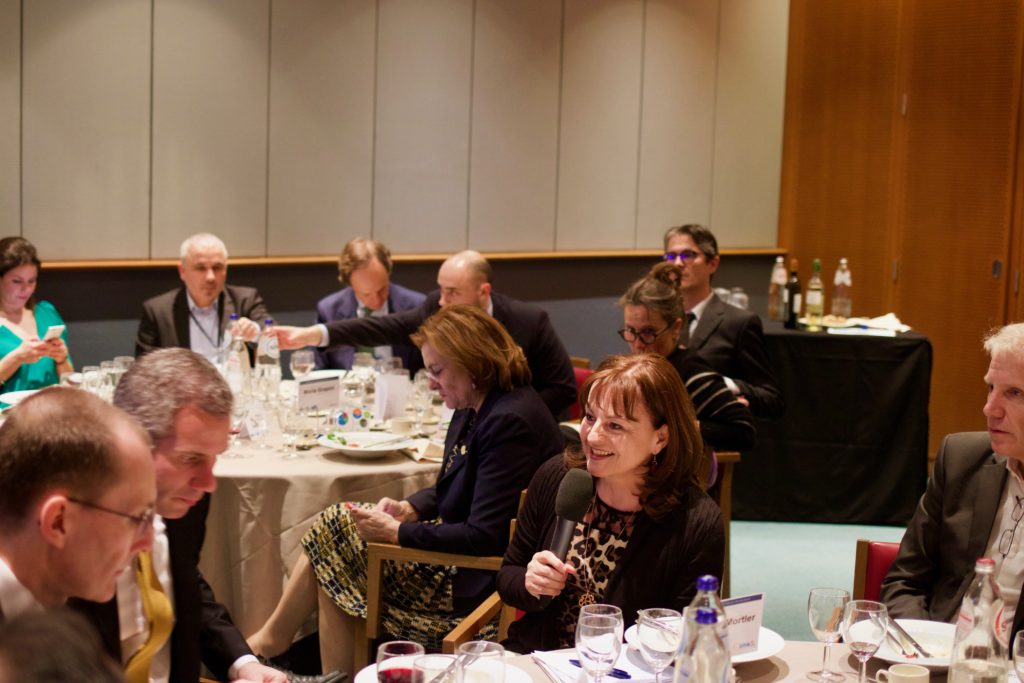
Marlene Mortler MEP examined the European Green Deal from the perspective of the farmers. “The European farming sector is the most important partner in order to reduce CO2 emissions by 2050.” She explained why it is vital that actions need to be taken first in rural areas and in the agricultural environment to have
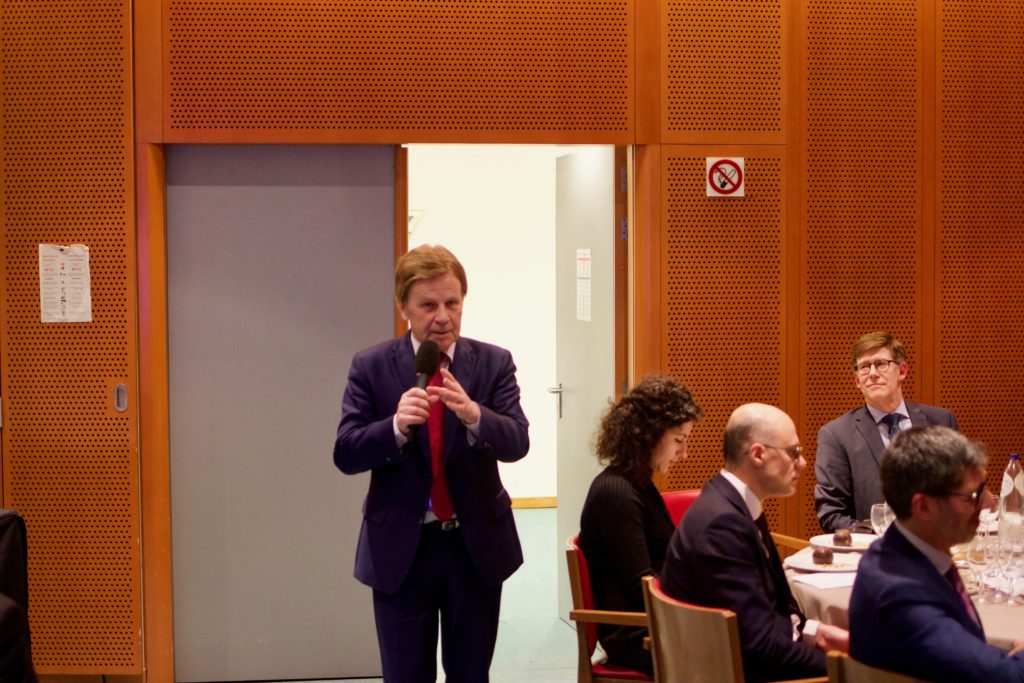
Mauri Pekkarinen MEP finished the discussion being rather sceptical on whether the objectives, set out by the European Green Deal, can be achieved. He argued that the target of reducing emissions by 55% in 2030 is a hard one. He continued by explaining that the EU succeeded to reduce emission by 25% within 28 years in the past. “And now we have to reduce our emissions by 36% within nine years. This is a very big challenge.”
We are thankful to our Speakers and Guests to have taken part in this discussion. Please visit our page on flickr.com to access more pictures taken during the event.

